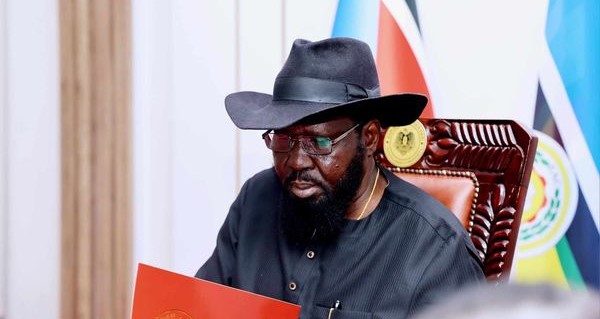Emergency meeting in South Sudan after elections postponed
2 min read

South Sudan’s government has convened an emergency cabinet meeting following the announcement that the country’s long-delayed national elections will be postponed by two years. Originally scheduled for December this year, the elections will now take place in 2026.
The decision to delay the vote comes after a 2018 peace agreement ended the country’s civil war, which had lasted for several years. Under this deal, President Salva Kiir retained his position in a transitional government, while his former rival, Riek Machar, was appointed as his deputy. Despite the agreement’s intention to stabilize the country and pave the way for democratic elections, South Sudan, the world’s youngest nation, has not held national elections since gaining independence in 2011.
The postponement of the elections is not entirely unexpected. There has been growing skepticism about the government’s commitment to holding timely elections, with many accusing political leaders of delaying tactics to extend their grip on power in the oil-rich nation. The office of President Salva Kiir has justified the delay by pointing to the need for several critical tasks to be completed before the elections can be held. These tasks include drafting a new constitution, which officials argue is essential for the electoral process.
In addition to constitutional reforms, the government has cited logistical and security challenges as reasons for the postponement. The complexities of organizing elections in a country with a history of conflict and instability have proven formidable. Given that the same political leaders who are currently in power were responsible for igniting a devastating five-year civil war, there are concerns about their commitment to democratic processes.
The postponement might not face significant international pressure at present, partly due to the ongoing conflict in neighboring Sudan. The regional instability could overshadow South Sudan’s internal issues, potentially reducing the focus of the international community on South Sudan’s electoral delays.
The South Sudanese government’s handling of the electoral process continues to draw criticism from various quarters. Critics argue that the delay is a strategic maneuver by the current leaders to consolidate their power and avoid the challenges that come with an election. The extended postponement raises questions about the country’s readiness for a democratic transition and the true intentions of its leaders.
As the situation unfolds, the international community and observers will be watching closely to see how the South Sudanese government addresses the electoral delays and whether it makes tangible progress toward the necessary reforms. The emergency cabinet meeting underscores the seriousness of the situation and the urgency with which the government is approaching the issue, even as the postponement itself has already fueled discontent and skepticism among the public and political analysts alike.
WhatsApp us